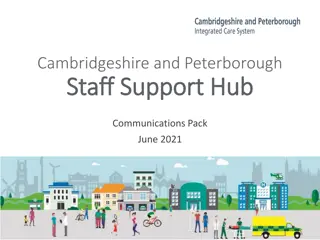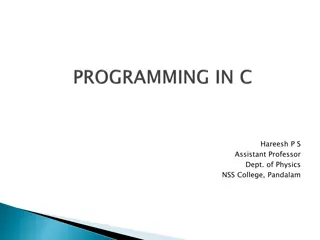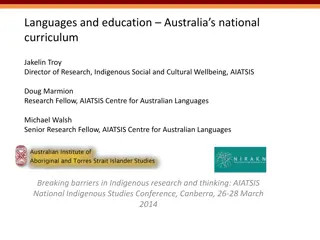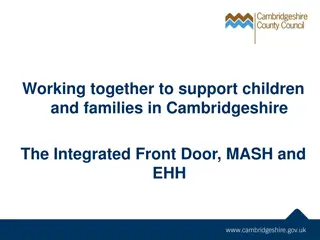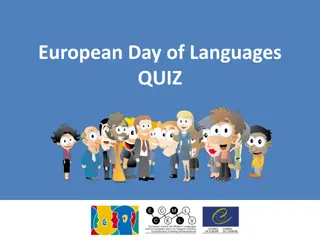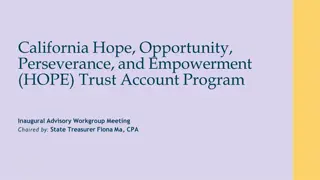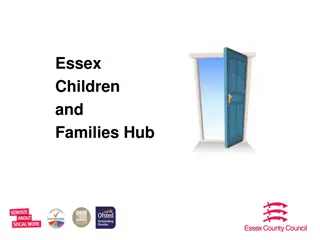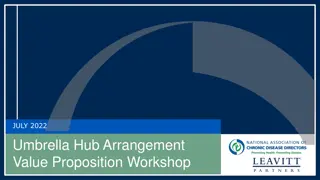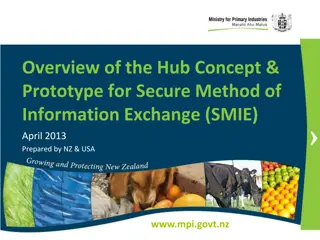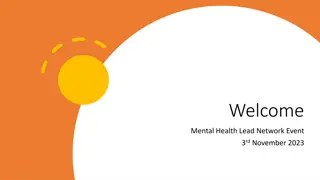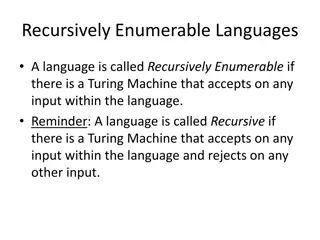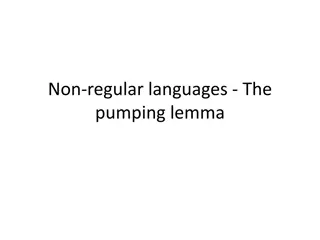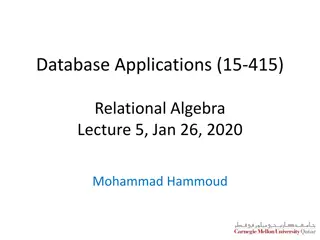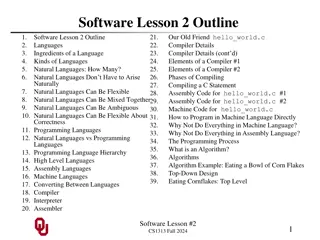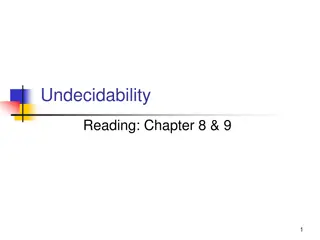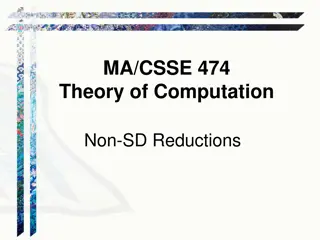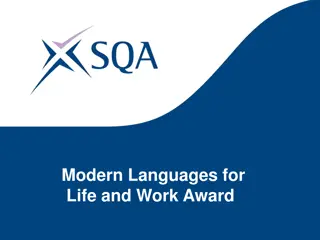All Primary Languages Hub South Cambridgeshire Inaugural Event
Join the inaugural event of the ALL Primary Languages Hub South Cambridgeshire on Thursday, 27th March from 4.30 p.m. to 6.00 p.m. at Comberton Village College. This event is for primary languages coordinators, teachers, specialists, non-specialists, and secondary KS2-3 coordinators or HoDs. Explore the statutory requirements of the new KS2 Programmes of Study and share practice ideas and resources. Free registration! Email ashorten@comberton.cambs.sch.uk to secure your spot.
Download Presentation

Please find below an Image/Link to download the presentation.
The content on the website is provided AS IS for your information and personal use only. It may not be sold, licensed, or shared on other websites without obtaining consent from the author. Download presentation by click this link. If you encounter any issues during the download, it is possible that the publisher has removed the file from their server.
E N D
Presentation Transcript
ALL Primary Languages Hub South Cambridgeshire Inaugural event Thursday 27 March 4.30p.m. 6.00p.m. Comberton Village College For all primary languages co-ordinators, primary language teachers, (specialists and non-specialists), and secondary KS2-3 co-ordinators or secondary HoDs. This new network, supported by ALL nationally, will work together to support the introduction of compulsory languages at KS2 from September 2014. In this initial event, we will look at the statutory requirements of the new Programmes of Study for KS2, and then share ideas for practice and resources. FREE! This event is free to all. Future events will be free to members of ALL. (Primary school membership is 36 only). Email ashorten@comberton.cambs.sch.uk to book a place.
Welcome and aims for the session Welcome and aims for the session Get to know other primary and secondary languages teachers Understand better the aims of the new curriculum Programmes of Study for languages Find out about different local curriculum models Prioritise areas for development and further training Find out about further (between meeting) support
Agenda Agenda Group task evolution Overview of KS2 & KS3 PoS - Rachel Hawkes Methodology - joining up KS2 and KS3 Rachel Hawkes Different models of delivery - Jane Driver and Katherine Monument Priorities for development - brainstorm Next steps June Event (Storytelling), online support and joining ALL
Rock, paper, scissors evolution! 1) Exchange one thing that excites you about teaching primary languages, one thing that is daunting 2) Rock paper scissors! 3) You lose you stay the same. You win you evolve!
Listening listen attentively to spoken language and show understanding by joining in and responding explore the patterns and sounds of language through songs and rhymes and link the spelling, sound and meaning of words Speaking engage in conversations; ask and answer questions; express opinions and respond to those of others; seek clarification and help* speak in sentences, using familiar vocabulary, phrases and basic language structures develop accurate pronunciation and intonation so that others understand when they are reading aloud or using familiar words and phrases* present ideas and information orally to a range of audiences* Reading read carefully and show understanding of words, phrases and simple writing appreciate stories, songs, poems and rhymes in the language broaden their vocabulary and develop their ability to understand new words that are introduced into familiar written material, including through using a dictionary Writing write phrases from memory, and adapt these to create new sentences, to express ideas clearly describe people, places, things and actions orally* and in writing Grammar understand basic grammar appropriate to the language being studied, such as (where relevant): feminine, masculine and neuter forms and the conjugation of high-frequency verbs; key features and patterns of the language; how to apply these, for instance, to build sentences; and how these differ from or are similar to English. Listening listen to a variety of forms of spoken language to obtain information and respond appropriately transcribe words and short sentences that they hear with increasing accuracy Speaking initiate and develop conversations, coping with unfamiliar language and unexpected responses, making use of important social conventions such as formal modes of address express and develop ideas clearly and with increasing accuracy, both orally and in writing speak coherently and confidently, with increasingly accurate pronunciation and intonation Reading read and show comprehension of original and adapted materials from a range of different sources, understanding the purpose, important ideas and details, and provide an accurate English translation of short, suitable material read literary texts in the language, such as stories, songs, poems and letters, to stimulate ideas, develop creative expression and expand understanding of the language and culture Writing write prose using an increasingly wide range of grammar and vocabulary, write creatively to express their own ideas and opinions, and translate short written text accurately into the foreign language. Grammar identify and use tenses or other structures which convey the present, past, and future as appropriate to the language being studied use and manipulate a variety of key grammatical structures and patterns, including voices and moods, as appropriate develop and use a wide-ranging and deepening vocabulary that goes beyond their immediate needs and interests, allowing them to give and justify opinions and take part in discussion about wider issues use accurate grammar, spelling and punctuation. KS2 KS3
KS2 Text KS3 Text Sentence Sentence Word Word appreciate stories, songs, poems and rhymes in the language read literary texts in the language, such as stories, songs, poems and letters, to stimulate ideas, develop creative expression and expand understanding of the language and culture listen attentively to spoken language and show understanding by joining in and responding listen to a variety of forms of spoken language to obtain information and respond appropriately
Key aspects to KS2 methodology 1 The sound-writing relationship (phonics) 2 Pronunciation when speaking from memory and when reading from text. Conversations questions and answers Reading includes deduction of meaning of new words inserted into familiar language 3 4 5 6 7 8 9 Enjoy stories, songs, poems Dictionary skills Content to include describing people, places, things Writing from memory Sentence building - involves manipulation of simple, key verbs, nouns and adjectives, and connectives
Models of KS2 languages provision 1 Primary teachers teach own classes (i.e. Y3 teacher teaches language to Y3, etc..) 2 One primary teacher teaches all of the language to all classes 3 A peripatetic languages teacher parachutes in to teach language to all classes 4 Mixed model primary teacher or TA teaches lower KS2, secondary languages teacher teaches upper KS2 5 Secondary languages teacher teaches language to all classes
Further support and next steps Next event = Monday 23 June Storytelling in the primary languages classroom (Rebecca Armstrong Consultant for Primary Languages, Bedfordshire) Online support KS2 Spanish http://www.livebinders.com/play/play?id=1267969&pres ent=true KS2 French http://www.livebinders.com/play/play?id=1267994&pres ent=true If prompted for a code, it s ABC123
And finally 36 for annual membership for your school. You will get: 1) Updates from ALL and from this local hub 2) FREE training at the hub meetings 3) Membership of a local and national network for languages


